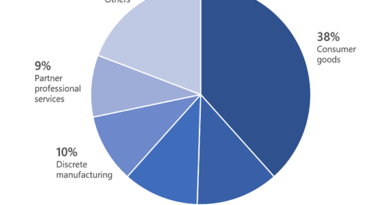This Week in Security News: Tracking and Hacking

Welcome to our weekly roundup, where we share what you need to know about the cybersecurity news and events that happened over the past few days. This week, Google revealed a secret deal with Mastercard that allows it to track what users buy offline. Also, Senate and House representatives warn that regulation may be coming for social media companies.
Read on:
Little Security Input in IoT Deployment Decisions
Trend Micro’s survey of global IT and security decision-makers found that companies are exposing themselves to greater risks by excluding IT security teams from discussions on IoT deployment plans.
BEC is Big Business for Hackers: What makes these attacks so hard to prevent?
Business Email Compromise, or BEC, is creating opportunities for cybercriminals to make money off of their malicious activity, and the sophistication of these attacks make them difficult to guard against.
Hacking, Cyberattacks Now the Biggest Threat to U.S., Trump’s Homeland Security Chief Warns
Homeland Security Secretary Kirstjen Nielsen stated that cyberweapons pose a greater threat to the U.S. than the risk of physical attacks.
Securing the Convergence of IT with OT
IT\OT processes may converge as they evolve. DevOps breaks down the barriers between development and operations for rapid deployment of new functions without compromising software quality.
Google Secretly Tracks What You Buy Offline Using Mastercard Data
After admitting that it tracks users’ location even after they disable location history, Google revealed that it has signed a secret deal with Mastercard that allows it to track what users buy offline.
The Risk of IoT Security Complacency
Most senior executives recognize that IoT can introduce security risk to the organization, but few will invest resources to remediate that risk.
After Equifax’s Mega-Breach, Nothing Changed
The Equifax data breach that affected more than 145.5 million U.S. adults was supposed to change everything about cybersecurity regulation on Capitol Hill. One year later, it hasn’t changed anything.
Outsmarting Email Hackers Using AI and Machine Learning
Cybercriminals compromise email accounts to enter the IT premises of an organization and carry out attacks ranging from fraud and spying to information and identity theft.
Facebook, Twitter Face Threat of Regulation as Congress Criticizes Response to Russia, Bias Claims
Senate and House representatives applauded efforts by Facebook and Twitter to root out foreign election meddling, but warned that regulation may loom for social media companies.
Do you think companies need to include security teams in discussions about IoT deployment plans? Why or why not? Share your thoughts in the comments below or follow me on Twitter to continue the conversation: @JonLClay.
Read More HERE



